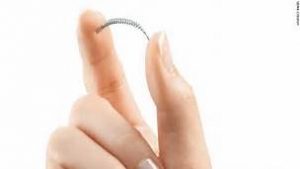 Elizabeth Bradley on April 21, 2017
Elizabeth Bradley on April 21, 2017
The FDA received 5,016 medical device reports involving Essure in 2016, plus another 6,176 reports in 2015, and 30 reports of deaths. The deaths include four adult women, 18 pregnancy losses, two infants who died after they were born, and a possibly stillborn baby.
Many reports listed multiple side effects. The most common problems with Essure included:
Pain/abdominal pain (10,746)
Heavier menstrual bleeding or irregularities (5,377)
Headache (4,396)
Fatigue (3,560)
Weight changes (3,270)
Patient-device incompatibility, such as nickel allergy (2,402)
Pregnancy (1,113)
Migration of Essure (1,485)
Broken Essure (617)
Pregnancy losses, ectopic pregnancy, abortion, miscarriage (474)
Essure difficult to remove (304)
Malposition of Essure (261)
The FDA update also provides new details on an ongoing Essure safety study that will compare 1,400 women who are sterilized with Essure against 1,400 women who have a traditional “tube tying” sterilization.
So far, the study has not shown any new safety problems or an increased risk of problems since Essure was approved. The researchers are investigating side effects like chronic pain, abnormal uterine bleeding, allergic reactions, hypersensitivity to nickel in Essure, autoimmune diseases, follow-up surgery, pregnancy, and effectiveness.
However, other recent studies have already shown that women who choose Essure are 10-times more likely to need another surgery compared to women who have a laparoscopic tubal ligation.
Essure is a metal coil that is permanently implanted in a woman’s fallopian tubes, where it causes irritation and scar-tissue growth. Essure is supposed to block the fallopian tubes to prevent pregnancy. Instead, many women got pregnant or developed severe side effects.
In November 2016, the FDA added a “Black Box” warning label to Essure, which is the strongest label the FDA can require on a device. The FDA also created a checklist to better inform patients about the potential side effects.
The problem is that Essure is marketed as a 30-minute non-surgical outpatient procedure for busy women, with less pain and a faster recovery time than tubal ligation. Lawsuits have been filed by women who accuse manufacturers of downplaying risks and violating approval requirements to get Essure on the market without adequate safety studies.
Source: Reviewing Ongoing Clinical Study to Gather More Information on Essure Benefits and Risks
This entry was posted
on Friday, April 28th, 2017 at 5:19 pm and is filed under News & Commentary.
You can follow any responses to this entry through the RSS 2.0 feed.
You can skip to the end and leave a response. Pinging is currently not allowed.
FDA Reports 10,000 Essure Injuries and 30 Deaths
The FDA received 5,016 medical device reports involving Essure in 2016, plus another 6,176 reports in 2015, and 30 reports of deaths. The deaths include four adult women, 18 pregnancy losses, two infants who died after they were born, and a possibly stillborn baby.
Many reports listed multiple side effects. The most common problems with Essure included:
Pain/abdominal pain (10,746)
Heavier menstrual bleeding or irregularities (5,377)
Headache (4,396)
Fatigue (3,560)
Weight changes (3,270)
Patient-device incompatibility, such as nickel allergy (2,402)
Pregnancy (1,113)
Migration of Essure (1,485)
Broken Essure (617)
Pregnancy losses, ectopic pregnancy, abortion, miscarriage (474)
Essure difficult to remove (304)
Malposition of Essure (261)
The FDA update also provides new details on an ongoing Essure safety study that will compare 1,400 women who are sterilized with Essure against 1,400 women who have a traditional “tube tying” sterilization.
So far, the study has not shown any new safety problems or an increased risk of problems since Essure was approved. The researchers are investigating side effects like chronic pain, abnormal uterine bleeding, allergic reactions, hypersensitivity to nickel in Essure, autoimmune diseases, follow-up surgery, pregnancy, and effectiveness.
However, other recent studies have already shown that women who choose Essure are 10-times more likely to need another surgery compared to women who have a laparoscopic tubal ligation.
Essure is a metal coil that is permanently implanted in a woman’s fallopian tubes, where it causes irritation and scar-tissue growth. Essure is supposed to block the fallopian tubes to prevent pregnancy. Instead, many women got pregnant or developed severe side effects.
In November 2016, the FDA added a “Black Box” warning label to Essure, which is the strongest label the FDA can require on a device. The FDA also created a checklist to better inform patients about the potential side effects.
The problem is that Essure is marketed as a 30-minute non-surgical outpatient procedure for busy women, with less pain and a faster recovery time than tubal ligation. Lawsuits have been filed by women who accuse manufacturers of downplaying risks and violating approval requirements to get Essure on the market without adequate safety studies.
Source: Reviewing Ongoing Clinical Study to Gather More Information on Essure Benefits and Risks
This entry was posted on Friday, April 28th, 2017 at 5:19 pm and is filed under News & Commentary. You can follow any responses to this entry through the RSS 2.0 feed. You can skip to the end and leave a response. Pinging is currently not allowed.